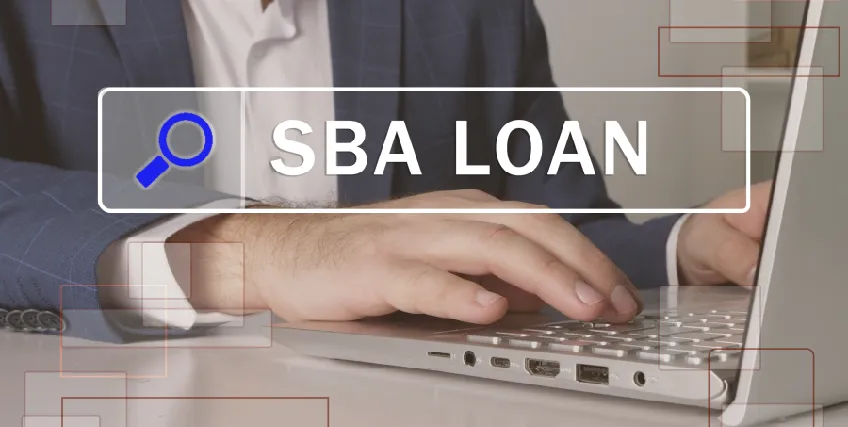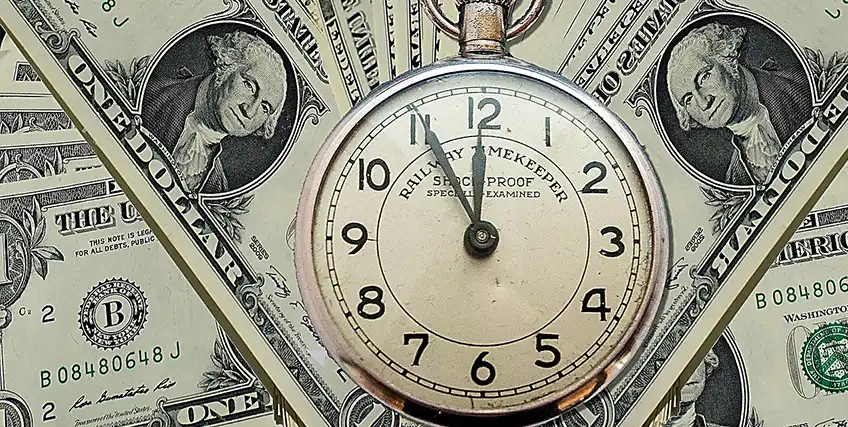Are Small Business Loans Secured or Unsecured?
October 01, 2025 | Last Updated on: October 01, 2025

In this article:
How to navigate the complex world of business financing.
Secured versus unsecured small business loans: Which is the right type for your business?
It’s a question business owners seeking financing have to grapple with.
This article explains the pros and cons of both types of loans and what they can be used for. You will come away with everything you need to know to find the right loan for you.
- Secured and unsecured loans: The top line
- Secured loans: The basics
- Secured business loans: Examples
- Unsecured loans: The basics
- Unsecured business loans: Examples
- What is collateral?
- Examples of collateral
- Pros and cons of secured loans
- Pros and cons of unsecured loans
- Secured versus unsecured loans: Which is the best small business loan for you?
- How do I get a secured or unsecured loan?
Secured and unsecured loans: The top line
There are two basic types of loans that every business owner should know about before getting financing: secured and unsecured loans.
Whether you’re looking to get a loan from a traditional bank, online lender, or one backed by the U.S. Small Business Administration (SBA), it’s essential to know what you’re getting into when signing up for a secured or unsecured loan. The primary difference is who is taking the more significant risk on the loan, the borrower or the lender. An unsecured loan places greater risk on the lender; a secured one on the borrower. In some cases, the business owner could lose critical equipment or property or put their personal finances at risk with an unsecured loan.
By taking the time to learn more about loans, you are better able to determine not just the best loan options for you but also whether you’re willing to absorb the risk of getting financing.
Secured loans The basics
Secured loans are backed by some type of collateral. Collateral is something pledged to pay back the loan if monthly payments are unable to be made. If you can’t repay your loan, your lender may take the collateral. This makes the loans riskier to business owners than no collateral loans because you put up valuable property you could lose.
Collateral for a secured loan can be something you’re purchasing, such as business property or equipment. It’s similar to when you take out a mortgage to buy a house. The bank keeps the deed to your home until you pay it back, including interest and fees. If you are unable to make your mortgage payments, the bank can put a lien on your house and could sell it out from you.
The concern about losing valuable personal or business property make it more likely loans will be paid back. That’s why lenders are usually willing to make higher-value loans if they’re backed by collateral.
Collateral can also include things like a home, valuable work of art or jewelry, vehicle, or securities. These types of personal assets are often referred to as a personal guarantee. It needs to be something of value the bank can take and sell if the loan is defaulted on.
If you are a few days late on your loan payment, the lending company will not immediately seize your assets. However, if you continue missing payments and violating the loan terms, the lender may exercise its legal right to issue a lien.
In almost all cases, if you’re seeking a substantial amount of financing, secured loans will be your only option.
Secured business loans: Examples
Here are some types of loans that are typically secured funding options:
- Business mortgages. The property the funding is used for serves as collateral for the loan.
- Construction loans. These are used to build on land you own and are secured with the property.
- Business vehicle loans. These loans are used to buy cars, trucks, vans, and other forms of transportation used by a company and are backed by the vehicle./li>
- Equipment financing. If you purchase business equipment or machinery using this type of loan, it’s usually backed by the equipment.
Unsecured loans: The basics
An unsecured loan is issued based exclusively on the borrower’s creditworthiness instead of collateral.
Banks, online lenders, and alternative financing companies offer unsecured loans. Typically these loans are for limited amounts of money. It’s challenging to get approved for these loans unless you have a solid credit score, long history in business, and a reliable income stream.
Getting approved for unsecured loans with a bad credit score can be extremely difficult. New businesses or startups founded by entrepreneurs typically don’t qualify.
Because the unsecured loan business loan is backed by an agreement rather than collateral, loan terms will reflect the risk the financing company is absorbing. You can expect relatively high-interest rates and shorter repayment periods on unsecured loans.
Unsecured business loans: Examples
Here are some examples of unsecured financing options:
- Business credit cards. The bank issues an approved borrowing limit that is not backed by any credit. Interest rates on business credit cards can be relatively high.
- Signature loans. If you have a good relationship with a bank (usually a local one or credit union), you may be able to get approved for a signature loan, which is an unsecured, no collateral loan. It relies on a good faith assessment of the borrower’s character and their promise to repay the money.
- Business line of credit. This type of loan provides a set amount of money businesses can borrow from on an as-needed basis. It only needs to be paid back when the cash is used.
What is collateral?
Collateral is something that is pledged as security for repayment of a loan. The financing company can sell it if several loan payments are missed. (Specifics are outlined in the loan agreement.) The purpose of collateral is to distribute risk more fairly. It helps ensure that the lender and lendee have a stake in the game. If you want to access large amounts of business capital , it will require some form of collateral, whether business or personal assets.
Lenders base unsecured loans on the current market value of the property or asset (collateral) minus the amount still owed on it.
Examples of collateral
Some common types of collateral that can be used to back business loans include:
- Houses, offices, land, or other types of real estate
- Vehicles
- Valuable items like art, watches, or rare collections
- Investments such as stocks and bonds
- Cash in the bank
- Any asset that can readily be converted into cash to pay off the loan.
Pros and cons of secured loans
There are good things and negative ones about secured loans.
Pros:
- They come with relatively low-interest rates.
- You’re able to borrow large amounts or money.
- You can qualify for longer repayment terms.
You will likely be able to find a loan for working capital and other business needs.
Cons:
- You must put up assets to secure financing.
- You risk losing your collateral to the lender if you cannot pay back the loan.
- Depending on the collateral, it could negatively impact your business or personal life if you lose it to your lender.
The pros listed above are what you gain by putting up collateral. By placing your personal or business assetson the line, you can usually secure better annual percentage rates (APRs) and terms from your lender.
Pros and cons of unsecured loans
There are good things and negative ones about unsecured loans.
Pros:
- You don’t need to put up collateral.
- You won’t face the risk of losing your property or assets.
- It’s relatively easy to get approved for smaller loan amounts with unsecured loans.
Cons:
- You could be held personally liable for repaying a business loan by having a blanket lien placed on your property.
- They come with relatively high-interest rates.
- You’re only able to borrow small amounts of money.
- Repayment terms are short.
The primary issue with unsecured loans is personal financial risk. You don’t have to put up collateral, but you can be held personally responsible for the loan. That means that if you don’t repay the money, your lendercould sue you and come after your personal assets.
Secured versus unsecured loans: Which is the best small business loan for you?
The type of loan you get depends on your business circumstances and what you need financing for.
A secured loan is typically easier to get approved for because it’s less risky for the lender. This is especially true if you have a poor credit history or no credit history. If that’s the case, lenders will want the loan backed with collateral to limit their risk.
Secured loans are issued in relatively large amounts and come with lower interest rates and longer repayment schedules. They’re typically used for larger business initiatives like buying a business property, purchasing machinery or equipment, expanding the business, or taking over another one.
Unsecured loans are generally short-term financing. Business owners are willing to take on higher interest rates and pay off the loan quickly because they have an immediate business need or unexpected financial situation, such as dealing with a cash flow emergency, purchasing inventory, making urgent repairs, and taking advantage of immediate opportunities.
In the end, you must do your due diligence to ensure you get the right loan from a reputable lender.
How do I get a secured or unsecured loan?
The loan application process for secured and unsecured loans for small business owners is similar. However, they have a few critical differences. In either case, the lender will check if you have good credit by reviewing your business and personal credit scores. The loan provider will request a credit report from one of the major credit reporting agencies.
In most cases, you will have to supply documents and other information to show that your business is healthy and financially stable. This could include the previous year’s tax returns, bank statements, profit and loss statements, revenue projections, and a business plan.
It is typically easier and faster to get approved at online and alternative lenders when compared with banks and traditional financial companies or for SBA loans. (In some cases loan money can be deposited in your business bank account in as little as one day.) However, the loans (even secured ones), come with relatively high interest rates and short terms.
In the end, if you consider the purpose of the loam, the loan amount, how much your can afford to pay back, how quickly you can pay it back, your credit score, and the stability of your business, you should be able to find the right secured or unsecured business financing for you.
FAQs
How are business loans secured?
Business loans are secured by collateral, an asset the lender can seize if the borrower defaults on the loan. These collaterals comprise cash, inventory, equipment, investments, bonds, real estate, and deposit certificates. Secured loans are easier to get than unsecured ones. It may also have lower interest rates with better financing terms. It is because the lender guarantees a way to get their money back if the borrower is unable to repay.
How do secured business loans work?
A secured business loan provides a lump sum of money but requires the borrower to exchange an asset as collateral. This security measure ensures that if the company defaults on the loan, the lender can seize the asset to recover their funds, reassuring them. This type of financing is ideal for businesses that require substantial capital but face challenges like a lower credit score. Secured loans offer a higher chance of approval than unsecured loans, making them a popular choice for various business ventures.
What is a secured business loans?
A secured business loan involves a lender providing a lump sum of money to a business, with the condition that the company promises an asset as collateral. If the business fails to repay the loan, the loaner can seize the collateral to recover their funds. This type of financing is frequently referred to as asset-backed lending. Examples of assets that can be used as collateral for a secured business loan include equipment, inventory, cash, investments, property, land, raw materials, machinery, and even gold.
What are unsecured business loans?
Unlike secured loans, unsecured business loans don't require collateral. Instead, they rely solely on the borrower's creditworthiness, which is evaluated on the basis of their personal and business credit history. This makes them suitable for business owners with limited assets or those who prefer to avoid risking their personal property. Though, lenders often view unsecured loans as a risk due to the lack of collateral. This can result in more strict eligibility criteria and potentially higher interest rates compared to secured loans.
Which banks offer unsecured business loans?
If you are looking for unsecured loans, here is a list of banks that provide them: Wells Fargo, Bank of America, Fundbox, OnDeck, Fora Financial, Bluevine, Accion Opportunity Fund, and Rapid Finance. When you apply for an unsecured business loan, lenders will examine the age of your business, the revenue it generates, and its credit score. Businesses with good qualities may find it easier to get a loan.




